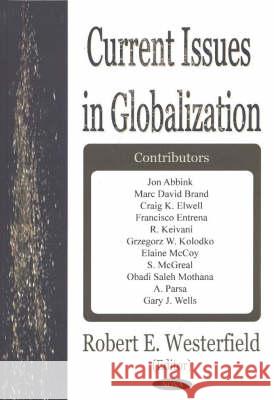Current Issues in Globalization » książka
Current Issues in Globalization
ISBN-13: 9781590338117 / Angielski / Twarda / 2004 / 216 str.
People around the globe are more connected to each other than ever before. Information and money flow more quickly than ever. Goods and services produced in one part of the world are increasingly available to the rest of the world. International travel is more frequent. International communication is commonplace. This phenomenon has been titled globalisation. The Era of Globalisation is fast becoming the preferred term for describing the current times. Just as the Depression, the Cold War Era, the Space Age, and the Roaring 20's are used to describe particular periods of history, globalisation describes the political, economic, and cultural atmosphere of today. While some people think of globalisation as primarily a synonym for global business, it is much more than that. not exist also allow social activists, labour organisers, journalists, academics, and many others to work on a global stage. This book brings together a wide range of expertise addressing these issues from the perspective of authors from around the world. Contents: Preface; From Westernisation to the Whirl of Globality: Conceptualising Globalisation and its Effects on Local Societies; Globalisation and Competitiveness: A Comparative Analysis of Selected Developing Countries vs. Industrial Countries; Globalisation, Marginalisation and Growth in Emerging Market Economies; Globalisation of Real Estate Markets and Urban Development in Central Europe; The Challenges of Globalisation: The Role of the World Bank; The Meaning and Limitation of Public Life under Global Capitalism; Violence and State (Re)Formation in the African Context: Global and Local Aspects of Crisis and Change; State Ideology, Global Economy and Coping Strategies; Index.











